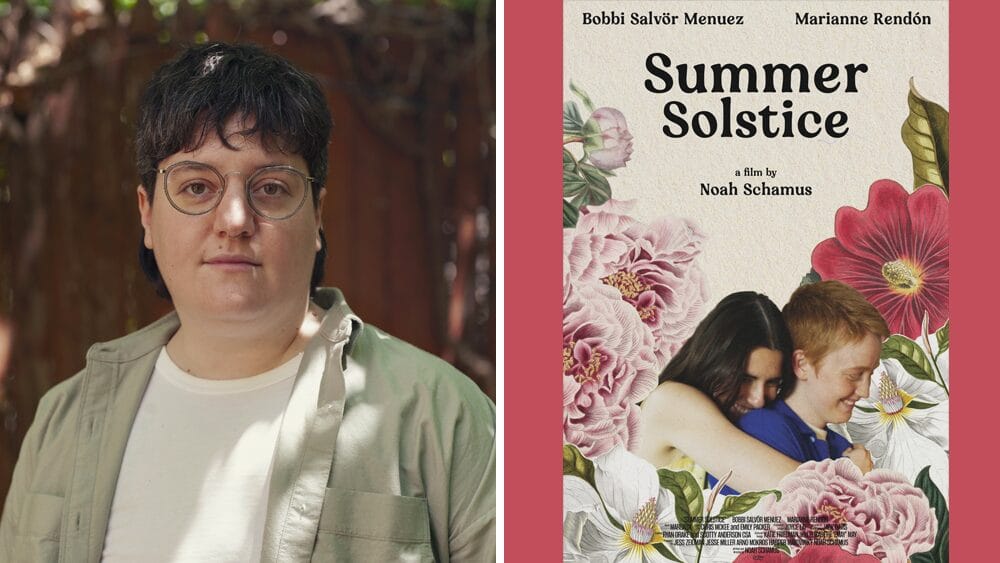In writer/director Noah Schamus‘s debut feature film Summer Solstice, Bobbi Salvör Menuez stars as Leo, a trans man who is an aspiring actor working as barista. All the while, he gets tangled in situationships. Out of the blue, Leo’s college BFF Eleanor (Marianne Rendón), calls him to let him know she’ll be driving through NYC, and offers to pick him up for an impromptu trip upstate.
The weekend getaway marks the first time they have spent together since Leo began transitioning. The reunion presents new gender dynamics which start uncovering problems lurking behind Eleanor’s “well-meaning” façade. As old feelings towards one another exist within this new context, forcing them both to confront buried secrets and emotions.
“I wanted to tell a story about shifting dynamics in long-term friendships that can arise when moving from our early/mid-20s to our late-20/early 30s, specific to a recently-ish out trans person and well-meaning but sometimes clueless cis friends,” Schamus said in a recent interview with GLAAD. “With Summer Solstice, I focused on writing a ‘post-transition’ trans story about a person trying to figure out how he fits in the world as a person, a friend, and an artist, in which his transness is central to his identity but not the only salient element of who he is and how he relates to the world.”
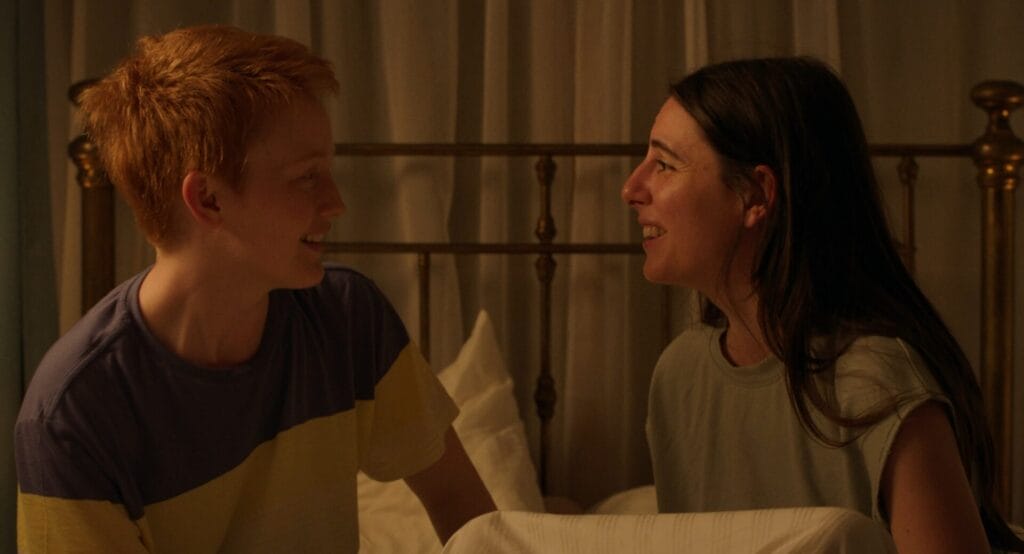
They continued, “I really wanted to work within a familiar genre — the indie buddy comedy — to expand what it means to be trans on screen and in life, through a playful, sometimes painful story of two friends trying — and sometimes failing — to connect in the same way they did in college.”
Read below about how Schamus’s journey in making their first feature, working with Menuez, and what they want more of in LGBTQ representation in film.
How was it like seeing your movie for the first time with an audience? Have there been specific reactions that have stood out to you?
It’s been so special to share the film with audiences, to hear when they groan and laugh. At one screening, during one of the more chaotic screenings, someone in the audience yelled “don’t do it!” which made me laugh. It’s an honor to see how the film gives people visceral reactions to the degree that they’re vocalizing those feelings during screenings. It’s also been magical to hear from queer and trans audience members who found part of their experiences reflected in the film.
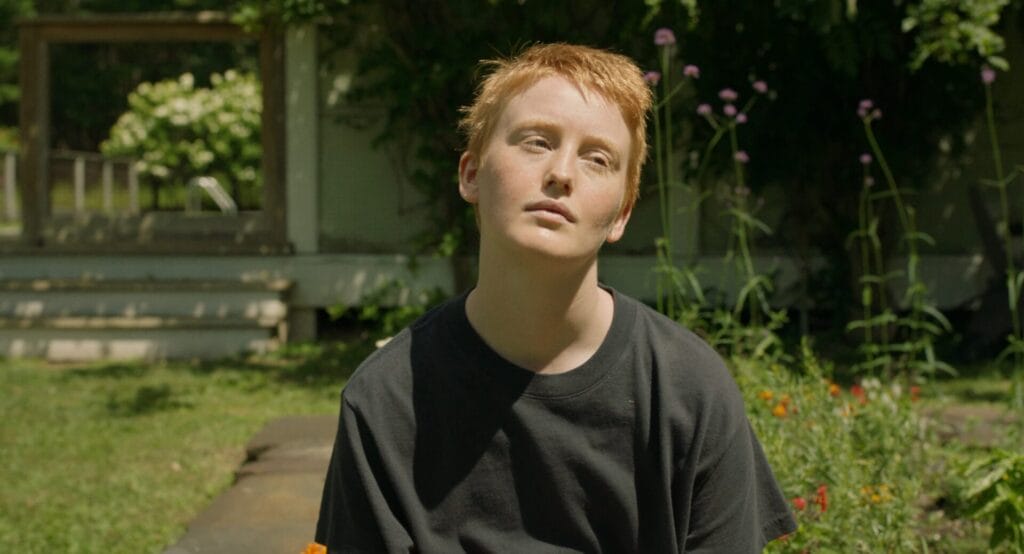
What was it about Bobbi that made you choose them to be your star?
I’ve been following Bobbi’s work for a long time, and I knew they would do such a great job bringing Leo to life. Bobbi did such a great job of quietly changing their physicality to express Leo’s insecurity at the beginning of the film, and then, Leo’s growing confidence. Their physicality was so subtle but also palpable. Their thoughtfulness in everything they do is really special and was so evident in our collaboration and their performance.
This is your debut feature film. How did you navigate your artistic vision and having a strong, protective bond over your first feature “baby”?
This answer may be a bit boring, but I knew that my first feature would have to be incredibly low-budget, so I wrote the script keeping in mind what resources I might have access to, and tried to keep the film at a logistical scale that would be feasible, while still making sure the story and characters were written with nuance and care, and reflected my aims as a filmmaker.
Thinking pragmatically throughout the process allowed me to feel confident about what I knew I needed, and have a real understanding of when I felt like making compromises or adjustments made sense, and I knew how to incorporate those compromises and adjustments into the larger vision of the film. Making the film was also such a collective effort, and I know the film is 100 times better for all the collaborations that happened along the way that, while I feel a strong bond to this as my first feature “baby,” I also feel an enormously strong bond to the process and people, and that bond feels just as important as any part of my artistic vision.
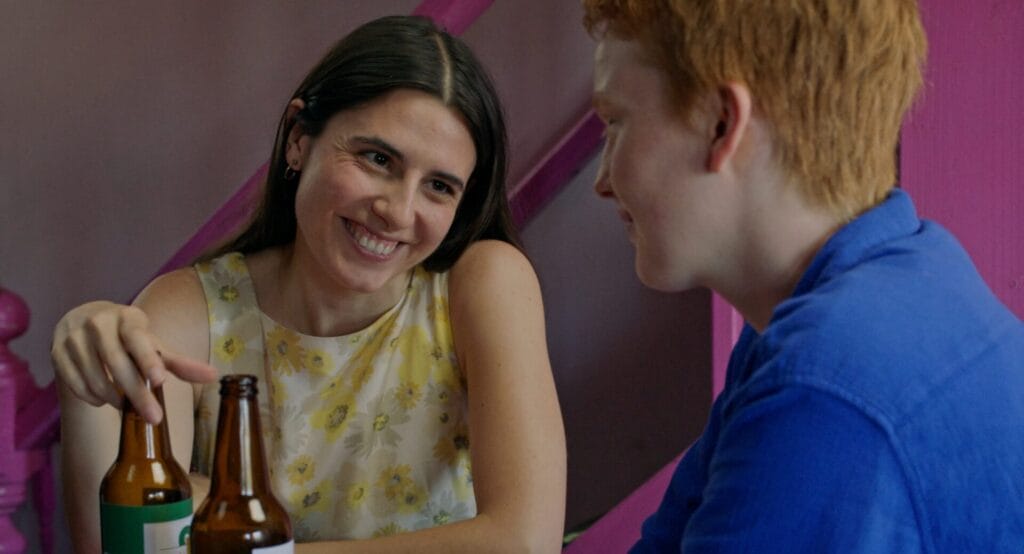
We are in a volatile time in Hollywood — specifically for diverse stories and indie films. What were some of the challenges you faced in creating Summer Solstice? And how did you overcome them?
We faced the same struggles as independent filmmakers everywhere: not enough money, not enough time, but ultimately that’s part of the experience of making a scrappy indie, and we hope the spirit in which we made the film shows up on screen!
What do you think it would have been like to see a movie like Summer Solstice when you were younger?
I started surreptitiously renting DVDs of The L Word from my local video rental store when I was 12. Within a few episodes, I fantasized about being a regular at The Planet, and going to art openings and Hollywood premieres and Dawn Dembo’s jell-o wrestling party with the characters. It was very powerful to see this group of glamorous (mostly) women “Talking, laughing, loving, breathing” as the theme song goes, to know that it was cool and desirable to be queer. I can’t go back in time to know what kind of impact Summer Solstice would have had on me then, but I hope it would have provided another window into queerness and transness that would have bolstered me in my youth, as I was figuring out who I was and who I wanted to be in the world.
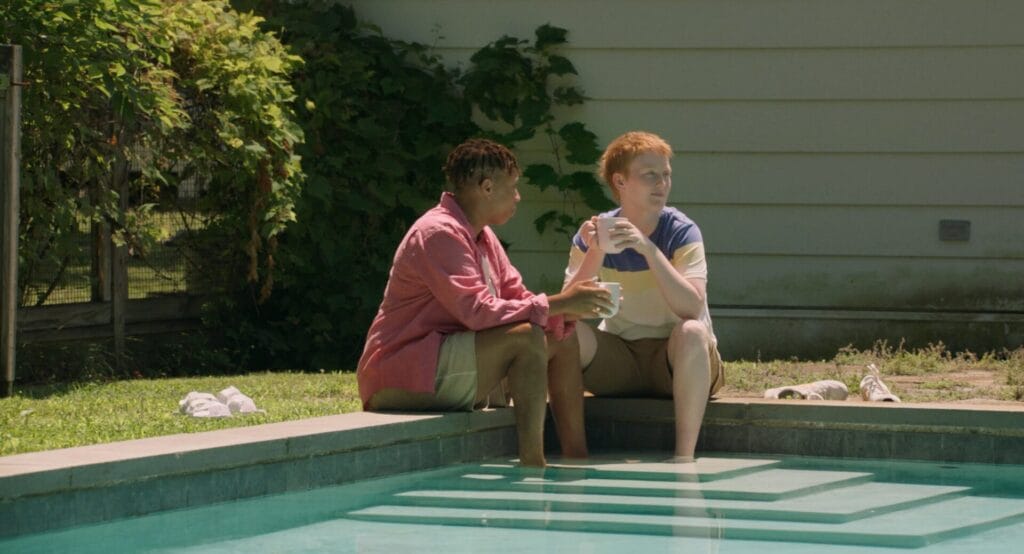
What would you like to see more of in TV and Film when it comes to LGTBQ representation?
I think there’s so much cool stuff going on with LGBTQ+ characters in film and TV: it was really exciting to see Jane Schoenbrun’s I Saw the TV Glow and Rose Glass’s Love Lies Bleeding on the big screen this year, and I really hope that there continues to an expansion of movies about queer and trans characters that bring in weirdness and a real spirit of experimentation. I just want to see a multiplicity of LGBTQ+ stories and characters on screen. I want to have my head scrambled by glorious queer cinema of all kinds.
Summer Solstice debuts in select theaters starting June 14.

